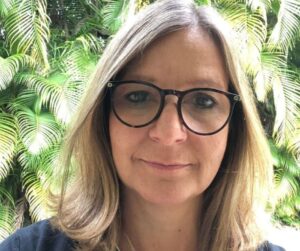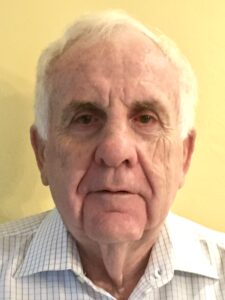By Rock Salt and Paola Ferreira, Tropical Audubon Society
This fall, Florida’s Governor and the Cabinet will review a judge’s recommendation to reject a proposed roadway that would damage the environment and thwart efforts to restore the Everglades. They should uphold the judge’s findings.
Proposed changes to Miami-Dade County’s Comprehensive Development Master Plan would allow a $1 billion extension of the Dolphin/836 Expressway into the western part of the county outside of the Urban Development Boundary and into protected Everglades wetlands and farmland. Administrative Law Judge Suzanne Van Wyk correctly rejected the changes to the master plan that would have accommodated the highway.
The comprehensive plan is a vital tool for the county to balance development needs with the protection of environmental resources. It has served to protect the county’s water supply, Biscayne Bay, environmentally endangered lands, and Everglades restoration while allowing responsible growth.

Miami-Dade County’s unique natural resources provide world-class recreational opportunities for boating, fishing and birding and remain a shining example for Florida and the world. The key to the master plan is balance—allowing responsible growth, while controlling it when it threatens our environmental treasures.
In recommending against the highway in her March ruling, the judge cited four factors:
First, the proposed highway – dubbed the Kendall Parkway — could seriously damage the benefits the Southern Everglades is expected to garner from the ongoing Everglades restoration. Various independent analyses demonstrate the harm.
Simply put, the 14-mile toll road would eliminate much of the benefit from the Bird-Drive Basin recharge project and other restoration improvements. Without the Bird Drive Basin components, the Everglades restoration in Southeast Florida would be compromised.
Second, the road would hurt key wetlands in the Bird Drive Basin and Pensucco Environmental Protection Area. These wetlands provide vital recharge for the West Dade wellfield—a major drinking water source for the county.
The road would eliminate a buffer designed to reduce flooding and improve wellfield recharge. The recharge benefits would deliver the environmental, water supply and flood control benefits of the Comprehensive Everglades Restoration Plan while ensuring that the public and farmers will keep their existing water supply.

Third, the Bird Drive Basin and Pensucco wetlands provide important habitat for fish, wood storks, ibis, herons and other wading birds. It’s also home to the endangered Florida Panther, Snail Kite and Bonneted Bat. The preservation of these habitats is a key goal of Everglades restoration.
Finally, the road will not fix the congestion in West Kendall. The judge concluded that the traffic benefits of the highway would be “meager.” The county’s own data demonstrate that the greatest time any motorist would save would be only six minutes per daily commute. In fact, the road would worsen traffic congestion outside the study area. There are other traffic solutions that would do far less environmental damage.
County residents are part of a culture that respects and enjoys our unique natural resources—a culture that also supports sensible growth. The county’s master plan serves to ensure that reasonable balance is achieved. It should not be changed here.
Judge Van Wyk reviewed the facts and her recommendation is the correct response. Gov. Ron DeSantis and the Cabinet have long supported Florida’s investment for Everglades restoration. They need to step up again and protect this investment by approving Van Wyk’s order and putting an end to this ill-conceived highway project.
Rock Salt is a board member of the Tropical Audubon Society Board and Paola Ferreira is the society’s executive director.
“The Invading Sea” is the opinion arm of the Florida Climate Reporting Network, a collaborative of news organizations across the state focusing on the threats posed by the warming climate.



